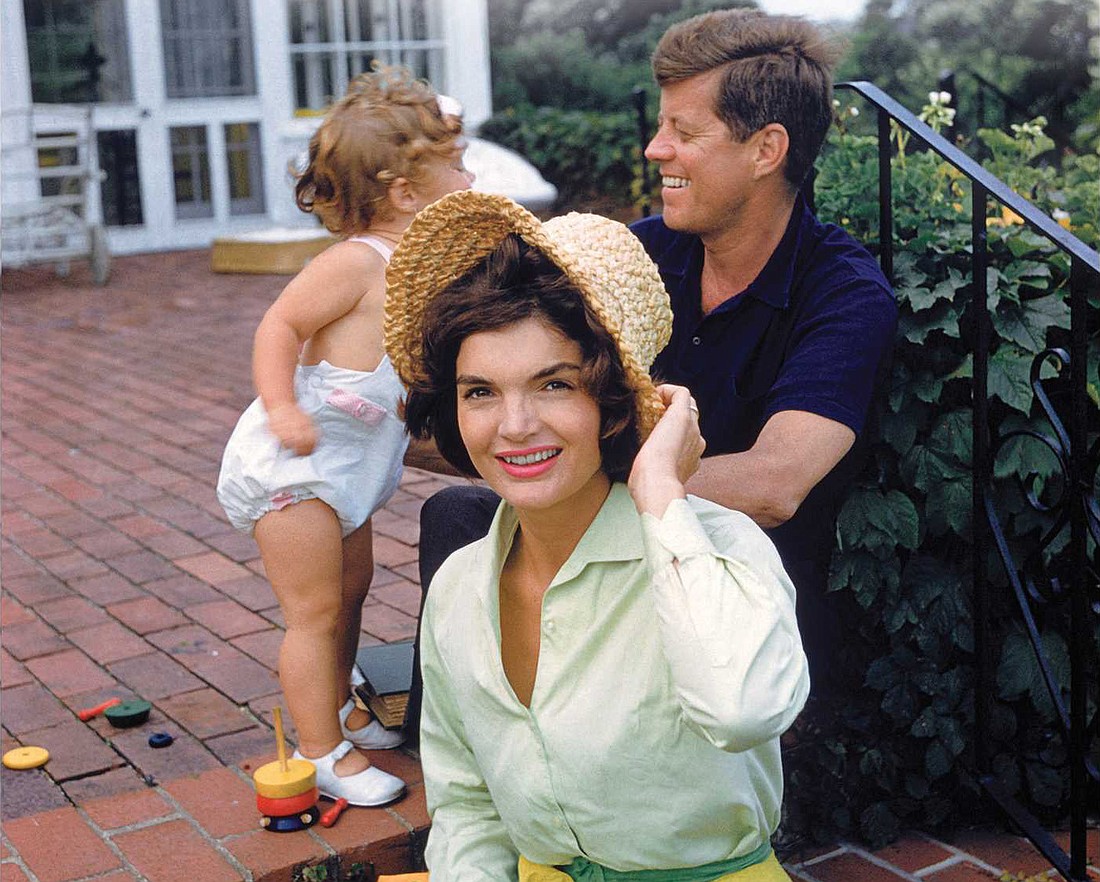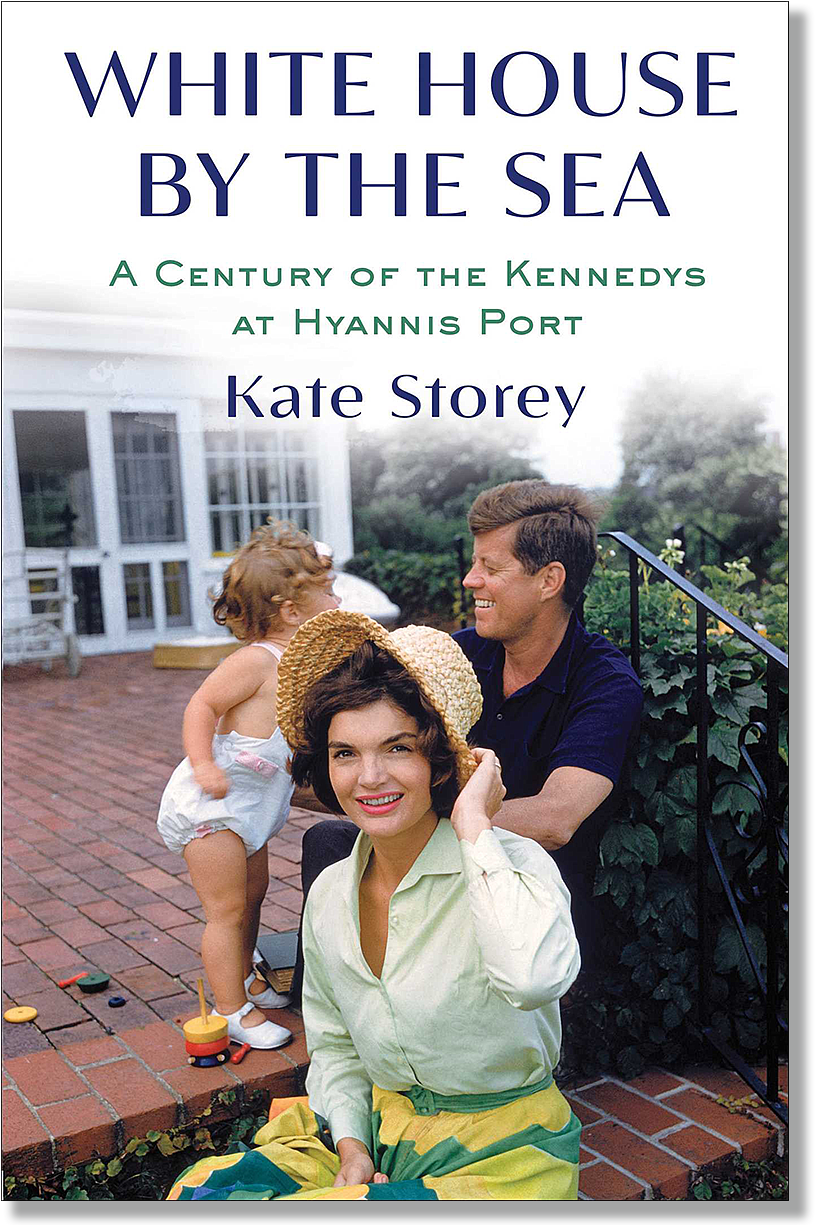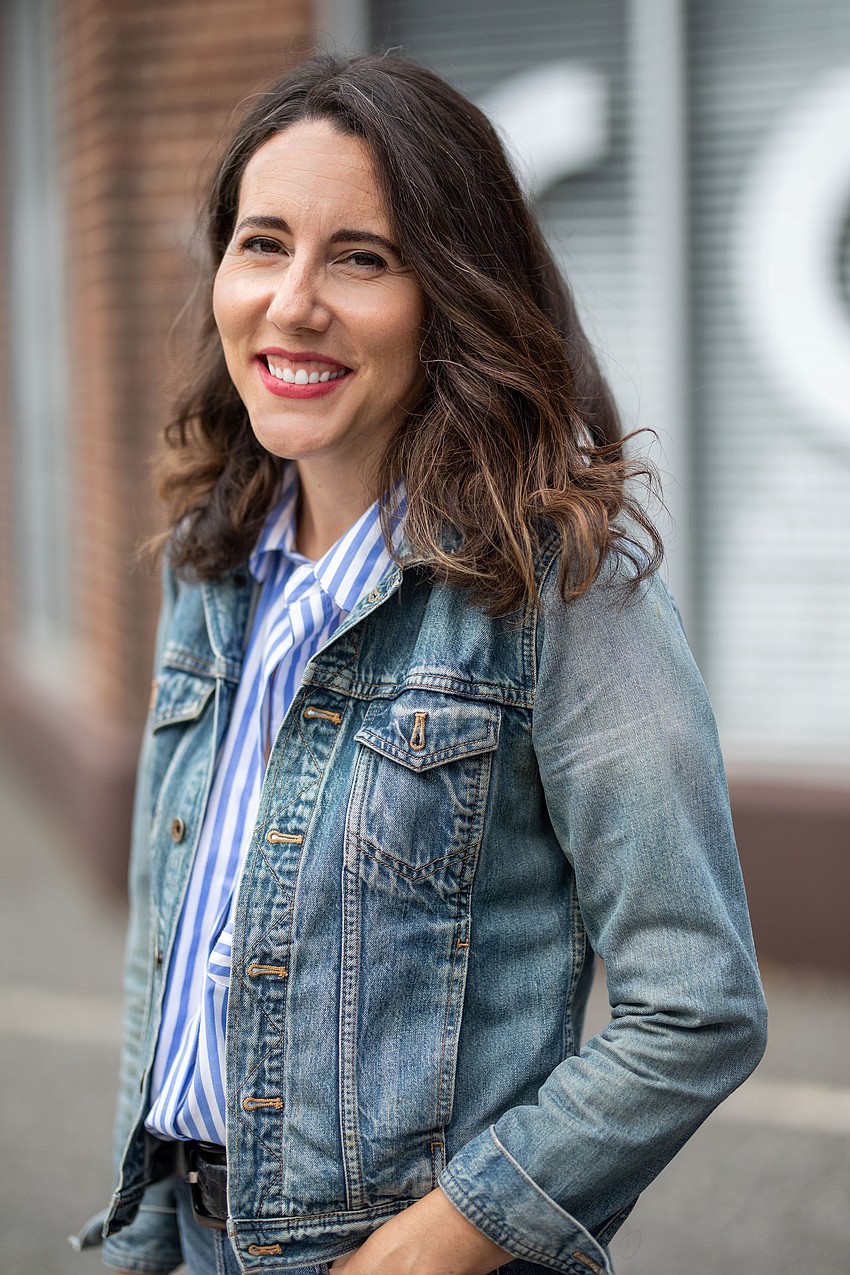- April 27, 2024
-
-
Loading

Loading

About 20 years ago, Kate Storey was writing for her high school paper at Riverview High School, encouraged in her dream to be a journalist by her teacher Pat Bliss. When she wasn't dishing out ice cream at Big Olaf, she liked to hang out with her friends at the beach on Siesta Key.
After graduating from the University of Florida with a journalism degree, scoops of a different kind were top of mind for Storey as a tabloid reporter at the hard-charging New York Post.
A plum assignment from Esquire about George, the irreverent political magazine founded by John F. Kennedy Jr. in the 1990s, led Storey toward longer articles and a shift to magazine journalism. It ultimately gave Storey, now senior features editor at Rolling Stone, the opportunity to write a book about the Kennedy family compound in Hyannis Port, Massachusetts.
"White House by the Sea" was published in June and immediately became a New York Times bestseller. Its arrival has made for a busy summer so far for Storey, who is juggling her book, her Rolling Stone job and caring for her son with the help of her husband Heath Brown.

It's not surprising that a woman who has written extensively about celebrities understands the perils of living in the public eye. To protect her son's privacy, Story declines to reveal his name and insures family pictures do not show his face.
Storey took time out of her busy schedule to talk with the Observer about how she found something new to say about the legendary American family whose victories and tragedies have inspired mountains of books. In the fall, she will hold a reading at Bookstore1 in downtown Sarasota.
Because her parents live near Siesta Key, Storey returns to Sarasota regularly from her New Jersey home. Her son loves the new playground and pavilion area at Siesta Key, she says. Her new favorite hangout downtown is Project Coffee on Pineapple Street, around the corner from Burns Court Cinema.
From the very first conversations I had with my publisher, Scribner, we knew this would be a summer book. It’s a book that covers a huge amount of history and a lot of heavy topics, but I tried to write it in a way that it would also be good to read on the beach.
The only way I could tackle it was by having laser focus on Hyannis Port. The book doesn’t go to Washington, D.C., or Boston or Palm Beach or Dallas. I came across a lot of interesting stories from those places, but this is — more than anything else — a story about a place.
Part of the challenge of writing about 100 years is you have to research different time periods differently. I spoke to more than 120 people for the book, so a lot of the stories from 1960 through today are anchored in those interviews. But for the earlier time periods, I relied heavily on oral histories, local newspaper archives, property records, letters, national magazine and newspaper archives, memoirs and biographies and local history books.

I really liked Carole Radziwill’s memoir. David Nasaw’s "The Patriarch" is also a fantastic book about Joe Kennedy. And Laurence Leamer has written great books about the family. The most helpful reference for me was this incredible oral history project Senator Ted Kennedy asked journalist Dotson Rader to put together shortly before Kennedy’s death.
Kennedy took Rader from room to room in the house — which I used to write the prologue — and Rader interviewed longtime neighbors and staff who have since passed away. I was lucky enough to be the first researcher to use this project.
Yes, I was lucky enough to talk to nannies, groundskeepers, sailing instructors, personal assistants, drivers, security guards, and even the family piano player. Those were some of my favorite interviews — the regular people who had a front-row view to history. The piano player, for example, remembered playing at the Big House one quiet afternoon when a friendly man came into the house dripping from the pool. He realized later the man was Archbishop Desmond Tutu!
I signed my book contract in March 2020 — just days before the pandemic shut down everything, including the JFK presidential library. Not being able to go to the library was a huge hurdle in writing the book. Luckily, I worked with some incredibly kind, creative and patient archivists there who were going into the library a day or two a week. They would send me scans and audio recordings that I needed.
Two of the three houses that make up the official Kennedy compound are still owned by members of the family, so I was able to do interviews at two homes on the property and walk around the grounds to see how they’re all connected, which was really helpful. I did interviews at many of the other Kennedy family homes across Hyannis Port, as well. Over the years, family members have purchased other homes in the neighborhood.
One of the most impressive properties is a house called Brambletyde, which is down the street from the official Kennedy compound. JFK and Jackie actually rented Brambletyde the summer before his death because it was more private than their home. They both loved the house so much they tried to buy it but the owners wouldn’t sell. Today, JFK’s nephew owns that home and I interviewed him there.
Ethel Kennedy still lives in the house she lived in with her husband, Robert F. Kennedy, and all of their children. She’s definitely lived in the compound the longest. The Big House is now owned by the Edward M. Kennedy Institute For the U.S. Senate, which is in the process of deciding how to use it.
There has been so much written about the family. But I really saw this as a book about a community and a place as much as a book about the Kennedys. I tried to shift my perspective away from digging for new information about the family, and to think about it more as a story about a place that was transformed when the neighbors became one of the most famous families in the world.
It’s really hard to wrap your head around all of the tragedy. Because my book is multi-generational, you really see how tragedies and trauma impact subsequent generations. And because I focused on the place the family most considers home, you really see how these tragedies impacted them when they were able to take down their guard and grieve.
Rose Kennedy, for example, who has a reputation for being so stoic, opened up to her longtime neighbor and her cook about the loss of so many of her children. She told her neighbor on a walk through the neighborhood one day that she considered her daughter Rosemary’s lobotomy to be the family’s greatest tragedy.
Go Rams and go Gators!